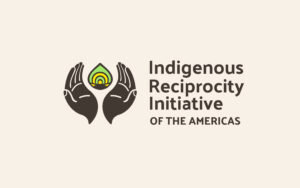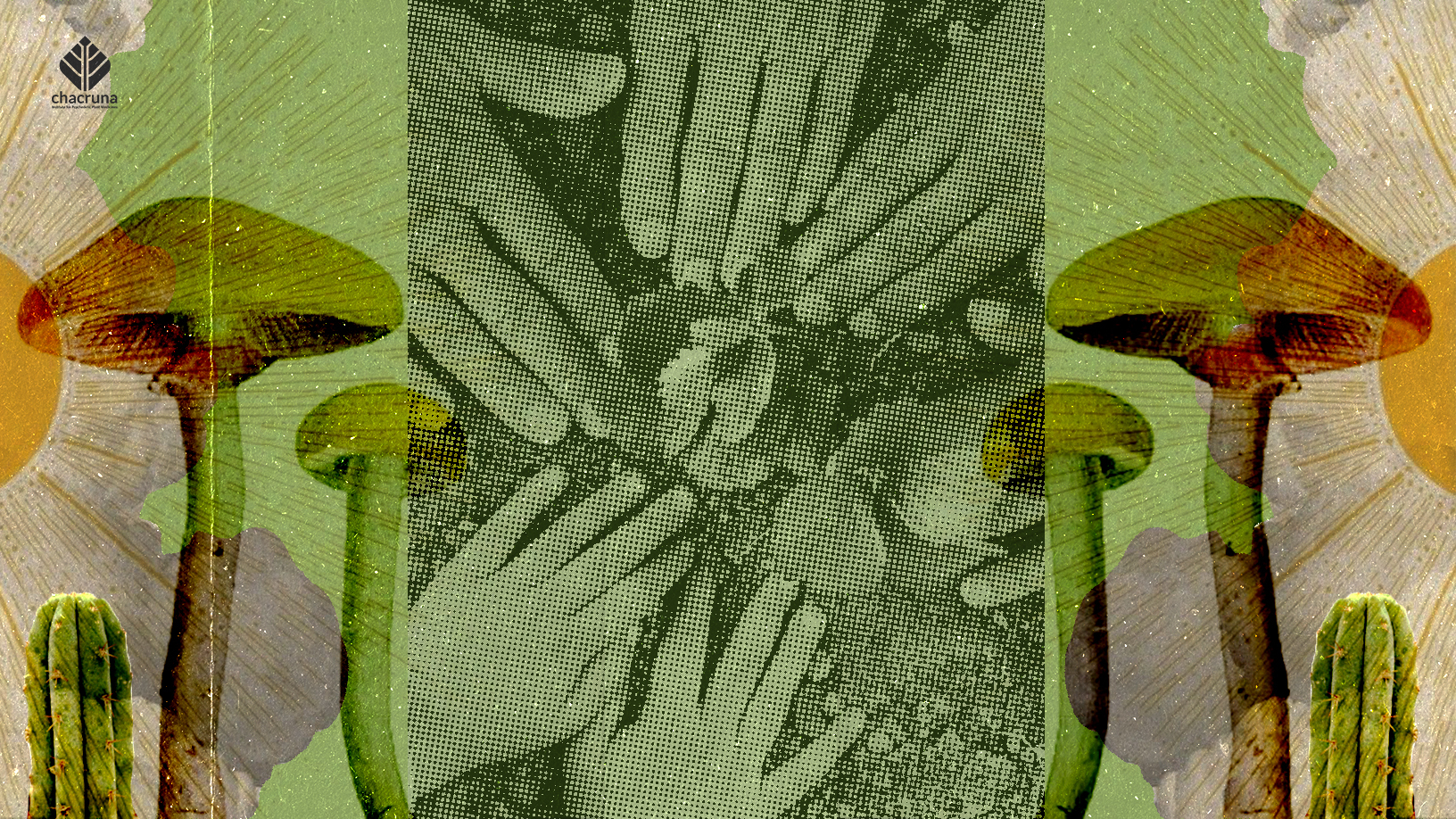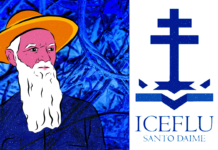- The Mission and Programs of Sacred Plant Alliance - September 23, 2024
- Chacruna Institute Files Amicus Brief in Support of Sacramental Churches’ Rights under RFRA Appeal - October 20, 2023
- The Mission and Programs of Sacred Plant Alliance - September 23, 2024
- The Mission and Programs of Sacred Plant Alliance - September 23, 2024
Protecting Sincere Psychedelic Churches and Supporting Safe and Ethical Spiritual Practices
After many years of diligent and thoughtful work, Sacred Plant Alliance (SPA) is excited for this opportunity to introduce our mission and our programs to you. SPA is a nonprofit association of psychedelic churches that have come together in fellowship to share their experienced wisdom on best practices with each other, prepare education for the public, and advocate for the legal protection of sacred ceremonial practices. SPA articulates best practices for safe, transparent, and ethical spiritual communities as collectively determined and committed to by its members. SPA member churches hold themselves accountable to these standards through on-going peer-review and self-regulation procedures. SPA also is engaged in several initiatives for public education and legal advocacy. By walking this collective, intentional, and disciplined path, SPA supports our members as they practice the teachings received through religious exercise and honoring the traditions that bless their communities.
Nurturing a Seed – Professional Association for Leaders of Psychedelic Churches
As a way of introducing ourselves, SPA is publishing several articles over the next few months through Chacruna Institute, where we first nurtured the seed of this idea of an association of psychedelic churches. We planted our organizational roots with the support of Chacruna Institute, where the project was originally incubated and launched before becoming an independent organization in 2021 and then recognized by the IRS as a 501(c)(3) nonprofit corporation in 2024. In 2020, SPA began as a small group of highly experienced leaders of psychedelic churches with a shared vision of the importance of connection, professional development, and mutual accountability. We have progressed from a volunteer-based project with a small but dedicated steering committee of founding members to an independent nonprofit religious corporation with a board of directors elected by the representatives of our member churches. Now, as a 501(c)(3) charitable organization, we are supported by a small staff and offer multiple membership classes and monthly activities. SPA currently includes 15 well-established psychedelic churches, many of whose leaders have over 10 or even 20 years of experience leading their communities. SPA member churches are located throughout the United States and have an average of about 350 members each.
Sacred Plant Alliance exists to support religious communities centered around ceremonies involving psychedelic sacraments (like ayahuasca or psilocybin-containing mushrooms), which create nonordinary states of consciousness for spiritual purposes.
SPA exists to support religious communities centered around ceremonies involving psychedelic sacraments (like ayahuasca or psilocybin-containing mushrooms), which create nonordinary states of consciousness for spiritual purposes. As a professional association of churches, SPA demands a rigorous application process to review each applicant’s practices and invites to membership those churches that dedicate faithfulness to SPA’s code of ethics, guidance on operational best practices, and peer review. Through the conscientious, but up-lifting, process of being a SPA member church, there are unique opportunities to benefit from frank discussions in a confidential container about the challenges and blessings of leading psychedelic communities. SPA offers multiple monthly meetings and communication forums for members to learn from each other, improve upon our practices, build leadership integrity, and co-create community accountability.
There has been increasing interest in religious practices involving psychedelic sacraments and a growth in the number of religious communities whose prayers are in relationship with these substances. Many of these churches have sincere religious beliefs but could benefit from guidance, mentorship, and professional community as they continue on their paths. There is a tremendous opportunity to support newer religious practitioners during critical stages of their development and to positively influence their ethical and safety practices. Without the resources that SPA supports its members to create, there is a greater risk that a flood of underprepared churches could unintentionally cause harm to their communities or negatively impact the perception of psychedelic churches as a whole. As one of our founding SPA members stated: “We are only as strong as our weakest link… So it is in everyone’s best interest to help underprepared churches be prepared.”
SPA brings together both established and newer psychedelic congregations to learn and grow in fellowship. By developing and refining its own standards of best practices over time, as well as criteria for membership with SPA, our hope is to serve in our educational efforts and as a model for other self-regulating professional associations in the psychedelic space.

Ethical Issues and Accountability for Psychedelic Churches
Despite the guaranteed right to religious exercise in the United States, psychedelic churches are burdened with a threat of prosecution, seizure and destruction of sacrament, stigma and persecution stemming from an unjust War on Drugs, and a general climate of fear and confusion regarding psychoactive substances. In this challenging reality, SPA formed to connect and support churches with sincere religious practices by defending and advocating for the guaranteed right to religious exercise.
Community is a healing and supportive force that may feel less available in a society that is increasingly demanding and disconnected. Community that is nourished by and grounded in shared belief systems inspires strong connection, promotes means of relating deeply to that which is held sacred, supports spiritual growth, and helps us care for others and ourselves. Unfortunately, such positive community processes are threatened by the present federal and state prohibitions of psychedelic practices in the United States. Historically and increasingly, the law protects sincere, safe, religious ceremonies with psychedelic sacraments. In fact, the Religious Freedom Restoration Act (RFRA) was enacted in 1993 directly in response to the U.S. Supreme Court’s failure to safeguard the sacramental practice of ceremony with peyote and, in 2006, the U.S. Supreme Court granted an exemption from the Controlled Substances Act to a church where ceremonies with ayahuasca were central to the church’s religious beliefs.
However, there remains a lack of a clear path to affirmative legality for individuals or communities engaged in sincere and supportive psychedelic ceremonial practices. Without an explicit exemption from the Controlled Substances Act, any practices involving controlled substances can be deemed illegal–even where, in the case of a psychedelic church, there is sincere religious belief, responsible practices that protect the wellbeing of the congregation, and a formally incorporated entity (like a religious corporation or private membership association). Therefore, due to the gray area of the legality of the religious exercise with psychedelic sacraments, a substantial majority of psychedelic churches are likely operating underground and their communities risk criminal charges, loss of professional licenses, and even potential difficulties with the custody of their children.
The underground has developed in ways that are incredibly valuable, however the members of these religious communities face additional unnecessary risks beyond potential unjust legal consequences. The underground nature of these ceremonies can make it a challenge for church leaders to locate appropriate information to increase safety for its congregation with respect to health concerns, such as the involvement of healthcare providers for screening, and complicate acquiring emergency services or other support services in the case of severe or persistent adverse effects. Even finding support for positively transformative experiences can be difficult.
Many religious leaders of psychedelic churches desire professional and personal support with respect to operations, improving leadership, and efforts to act in integrity, but opportunities are constrained due to legal concerns. Church leadership within a community is a demanding role with nuanced relational circumstances and situations. SPA creates a space for collaboratively created resources and reflection. Additionally, although SPA knows that a substantial number of religious leaders and their communities engage in ethical practices and safety-oriented psychedelic ceremony, there are also those who intentionally or negligently harm their members. Certain harms are undeniably horrific in and of themselves and the lack of affirmative legality and accountability mechanisms increase and add to injuries. Without this legality and social normalization, bad actors can leverage criminal, professional, custodial, or reputational risks against someone who wishes to come forward about a harmful experience, even entrapping community members in ongoing abusive dynamics.
Thus, certain aspects of the underground can endanger sincere psychedelic communities and limit the ability to mitigate any inherent risks of these sacred practices, communal relations, and abuse of positional power.
Sacred plant alliance formed to increase opportunities for safety within psychedelic churches.
SPA formed to increase opportunities for safety within psychedelic churches. We seek to diminish and address harms head-on through our code of ethics and ethical guidelines, which articulate what SPA members believe constitute safe, ethical ceremonies and clarify the standard to which members have agreed to hold themselves. As part of the ethical guidelines, SPA has established an adverse event and ethical reporting system to create a space for accountability when concerns or actual harms arise. SPA requires its members to share SPA’s reporting form with their communities, so that any community member may identify adverse events and raise ethical concerns with the SPA Ethics Committee. This Committee reviews submissions of the form and engages in a formal ethics review process when appropriate. In addition, once per year, SPA members engage in one-on-one peer reviews of all practices with another member and, starting in 2025, SPA will be requiring members to participate in an annual ethical leadership training course.

Discover the Indigenous Reciprocity Initiative of the Americas
Defending Guaranteed Rights to Sincere Religious Psychedelic Practices
SPA is committed to protecting and clarifying the legal path of sincere psychedelic communities with ceremonial practices as a whole. Because of SPA’s unique position as an association of experienced churches, we have the ability to engage in advocacy and legal initiatives on behalf of our members; SPA may act in this capacity as there is strength in numbers, for the collective good, and to reduce undue legal risk to an individual member. Although RFRA is only applied as an individual analysis, there are significant legal victories that may be accomplished through associational standing on behalf of our members.
In 2023, SPA and Chacruna Institute collaborated to file an amicus brief in support of the plaintiff church in the Iowaska Church of Healing v. United States case, which involved an ayahuasca church’s rights to free exercise of religion, protected under RFRA, and to obtain IRS recognition of its 501(c)(3) nonprofit status as a church. Although the church was not successful in its appeal, the amicus brief contains significant key arguments that identify the protection of religious exercise with an entheogenic sacrament pursuant to RFRA.
At this time, SPA is developing strategies to engage with the DEA to encourage reasonable revision of the existing petition process for a religious-based exemption from the Controlled Substances Act. The existing petition process is based on an interim guidance issued by the DEA in 2009 and creates an alleged pathway for individuals or communities to petition for an exemption rather than wait until there is a legal substantial burden on religious exercise. However, this petition process is largely nonfunctional, as the U.S. Government Accountability Office recently noted in its report, “DEA Should Improve its Religious Exemptions Petition Process for Psilocybin (Mushrooms) and Other Controlled Substances, May 2024.”
Through amicable conversations or other legal efforts involving the DEA, SPA seeks a viable and reasonable religious-based exemption petition process. We maintain that the DEA is obligated to grant religious-based exemptions in recognition of the existing right secured by law to engage in safe and sincere religious exercise with sacraments.
Sacred Plant Alliance furthers legal advocacy by collectively establishing best practices by its experienced members; these reasonable standards may be referenced by courts and government agencies when making determinations and developing a realistic legal pathway.
SPA furthers legal advocacy by collectively establishing best practices by its experienced members; these reasonable standards may be referenced by courts and government agencies when making determinations and developing a realistic legal pathway. SPA also believes that supporting psychedelic churches who implement existing best practices will prevent excessive and discriminatory regulation in the future and minimize the cloaking of bad actors. A functional petition process with reasonable criteria and requirements for a religious-based exemption would advance the protection of the religious minority–as demanded by RFRA–and contribute to safety and ethical practices within psychedelic religious communities.

Shop our Collection of Psychedelic T-Shirts.
Opportunities for Sacred Plant Alliance Membership and Connection
If you are a psychedelic community leader who shares our vision of collaboration, ethical standards, mutual accountability, transparency, and safety, we invite you to apply for membership with SPA. Our membership application cycle is currently open and applications are due by Tuesday, October 29th.
Please join us for our two upcoming info sessions on September 24, 2024 or October 8, 2024 for more information.
SPA is also engaging in a survey to get a better understanding of the needs and operations of psychedelic churches. The results of the survey will be used to tailor our membership opportunities and publicly available educational materials. SPA’s survey is available here: Sacred Plant Alliance’s Psychedelic Ceremony and Community Survey in the United States.
Visit our website, www.sacredplantalliance.org, for more information about our programs, to join our mailing list, or to apply for membership. You can also follow SPA on Instagram and LinkedIn.
SPA gratefully acknowledges the significant contributions of Nicole Cohen Ochoa, SPA Program Coordinator, to this article.
Art by Karina Alvarez.
Take a minute to browse our stock:
Did you enjoy reading this article?
Please support Chacruna's work by donating to us. We are an independent organization and we offer free education and advocacy for psychedelic plant medicines. We are a team of dedicated volunteers!
Can you help Chacruna advance cultural understanding around these substances?














